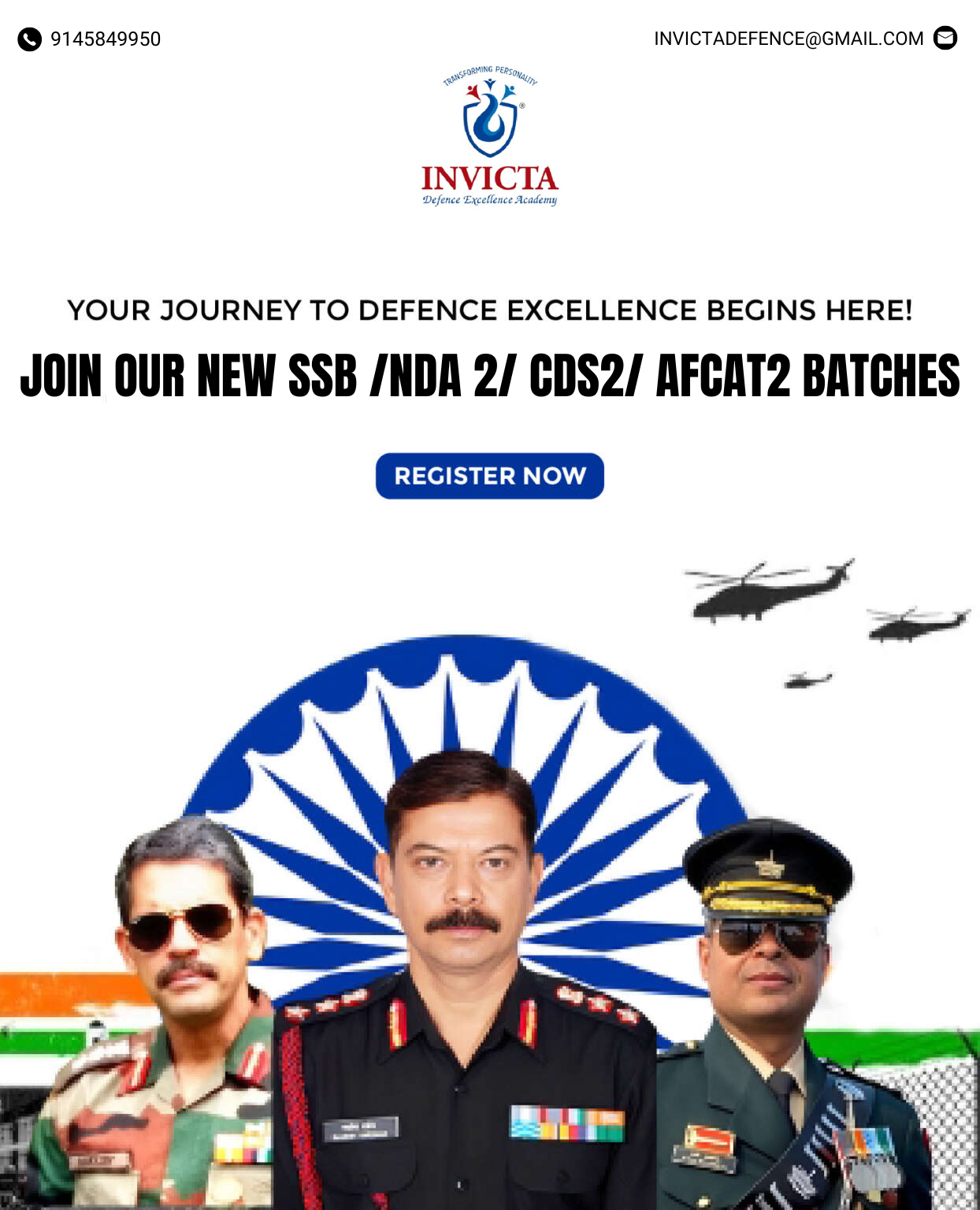SSB INTERVIEW PROCESS
STAGE I - SCREENING
On day 1 after arriving at Service Selection Boards, the Stage 1- Screening tests are conducted. The aim of screening test is:-
• To eliminate the obvious Inadequate candidates.
• To devote more time and effort on the potential candidates in Stage II.
• To process a greater number of candidates to select the desired numbers.
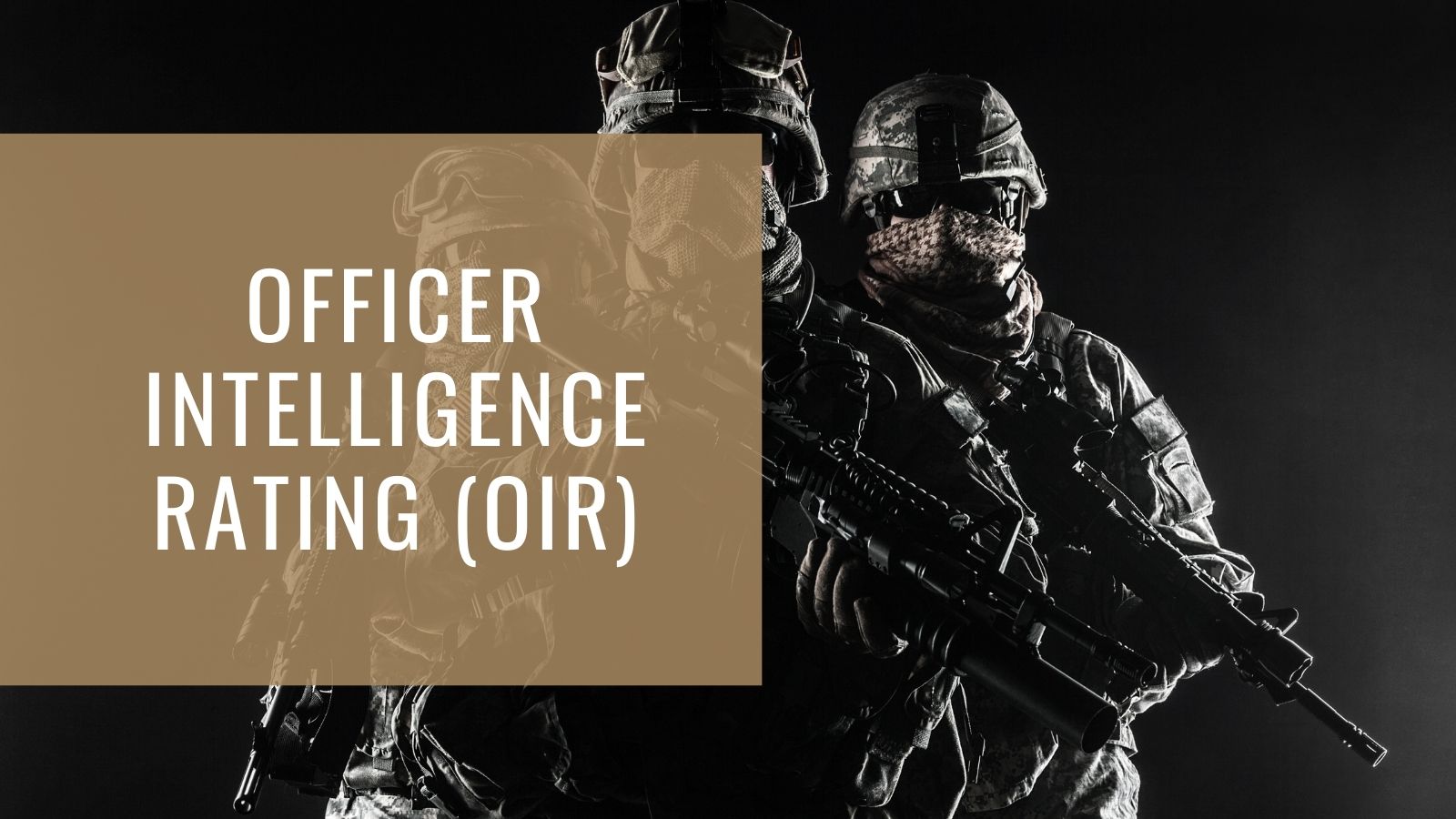
OIR Test (Officer Intelligence Rating)
This testing phase consists of two assessments: Verbal Reasoning and Non-Verbal Reasoning tests. These assessments are designed to evaluate the IQ of candidates and play a significant role in the initial stage's overall scoring, alongside the Picture Perception and Description Test (PPDT).
The scores achieved by candidates in these tests determine their Officer Intelligence Rating (OIR) on a scale from 1 to 5. A rating of 1 corresponds to the highest performance (100%), while a rating of 5 represents the lowest performance (10%).
To aid candidates in preparing for this segment, we provide them with informative handouts containing sample questions. This practice enables them to familiarize themselves with the question types and the testing process. Given the time-bound nature of this section, we strongly encourage candidates to engage in dedicated practice and actively seek clarification for any doubts they may have. Our aim is to support candidates in honing their skills and boosting their confidence for this crucial phase.
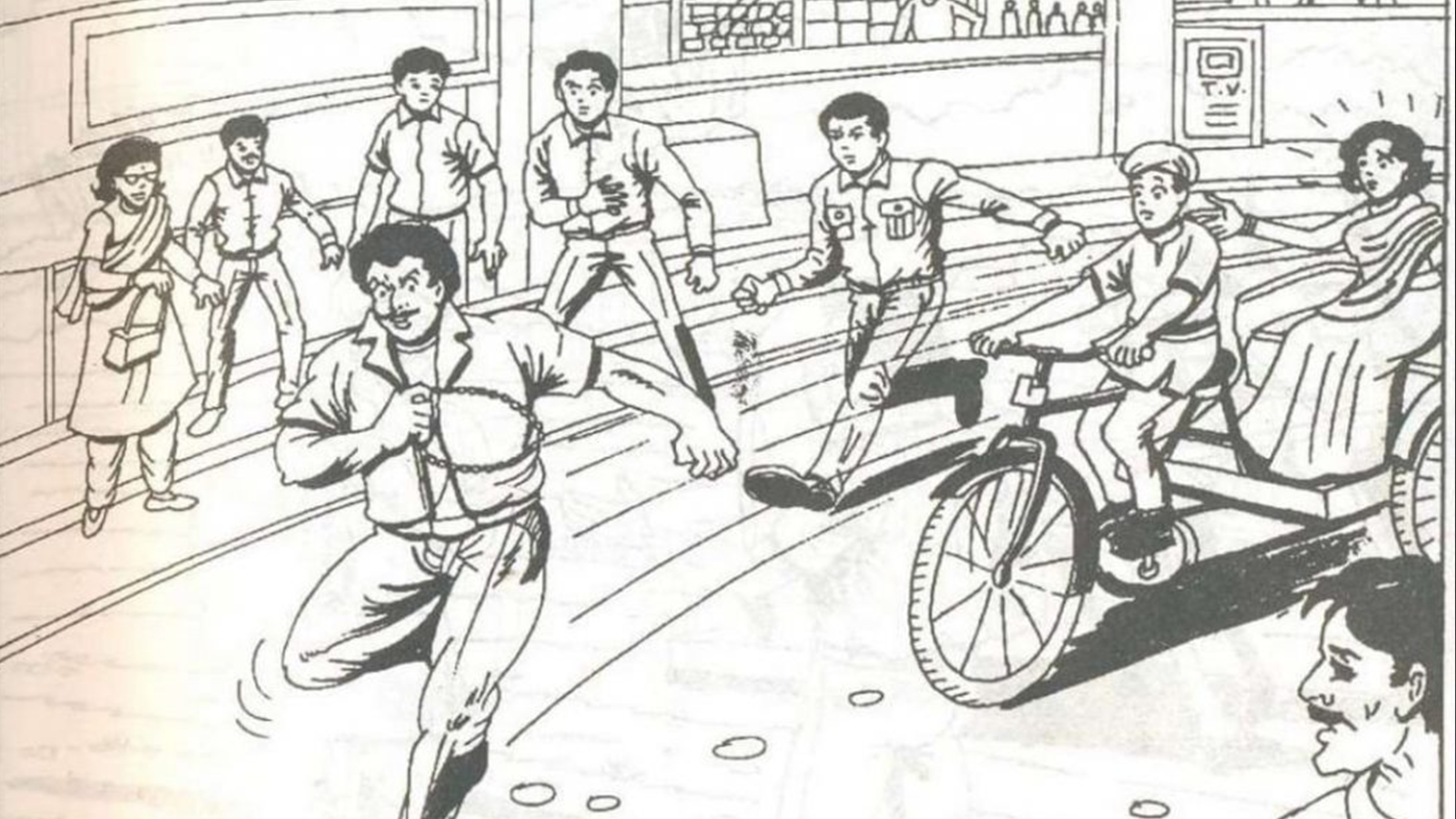
PPDT - Picture Perception and Discussion Test
This testing process consists of two distinct phases:
Part 1: During the first phase, candidates are presented with a slightly unclear image for a duration of 30 seconds. Subsequently, they are tasked with crafting a narrative based on the image within a 5-minute timeframe.
Part 2: Moving on to the second phase, a group of approximately 12 to 16 candidates are seated in a semi-circular arrangement. They are granted a brief period to reacquaint themselves with the narratives they've composed. Following this, each candidate takes their turn to verbally recount their story to the group. Subsequently, the entire group engages in a collaborative discussion to formulate a unified storyline that harmonizes the various individual narratives.
To support candidates in mastering this phase, we ensure ample practice opportunities. Furthermore, we facilitate real-time group discussions, enabling candidates to become comfortable with the dynamics of collaborative story development.
STAGE II- PSYCHOLOGY TEST

Psychology Test
Cleared Stage 1? Proceed to Stage II. Day one: Psychology Test. SSB’s Psychological tests are Projective, evoking responses via images, words, or scenarios. Purpose: delve into subconscious, assessing overall OLQs. Crucially, coached responses hinder genuine evaluation. Invicta’s assessors adeptly guide candidates to naturally tap into their minds, fostering authentic responses that reveal true personality.

Thematic Apperception Test
Candidates imagine stories for pictures—depicting causes, ongoing events, outcomes. Each 30-second picture prompts a 4-minute tale. The 12th image is blank, demanding an original story. Crucial: Swift imagination within time limits. Challenges: limited imagination, speed. Assessors use exercises, tools, enhancing content-rich speed. Candidates undergo real-time psychological tests, simulating SSB conditions.

WAT - Word Association Test
In this test, candidates view 60 words on screen (15 seconds each) and write an immediate sentence in response. It’s an imagination test, demanding swift candidate reactions. The major challenge is quick sentence formulation based on the given word. Consistent practice is essential to enhance the brain’s imagination and sentence structuring agility. Emphasis on the fundamental concept helps channelize thought processes effectively.

SAT - Situation Reaction Test
This test presents a booklet with 60 semi-structured situations, prompting candidates to react. Tailored to assess Officer Like Qualities (OLQs), these relatable day-to-day scenarios are framed in third person (‘he’). With no definite right or wrong answers, the test evaluates a candidate’s practical perspective and problem-solving approach. At Invicta, we cultivate mental acumen using our extensive course material filled with diverse situations. This fosters a foundational strategy for understanding and composing responses, enhancing candidates’ test performance.

SD - Self Description Test
The Self-Description Test assesses candidates’ self-awareness. It entails writing opinions from parents, teachers, and friends, self-assessment, and aspirations. Time allocated: 15 minutes. At Invicta, we enhance self-image using psychological tools. We help candidates develop a positive self-concept naturally, moving beyond scripted responses. Guided transformation dispels irrational self-perceptions. This equips candidates to present themselves authentically, fostering a healthier self-image and mindset.
STAGE III- GTO

GTO Tasks
Following Psychological testing in Stage-II, candidates engage in outdoor group tasks. These exercises evaluate teamwork and individual performance. The Group Testing Officer (GTO) oversees this phase. It comprises nine tasks, with the primary goal of assessing candidates’ cooperative abilities and personal attributes.
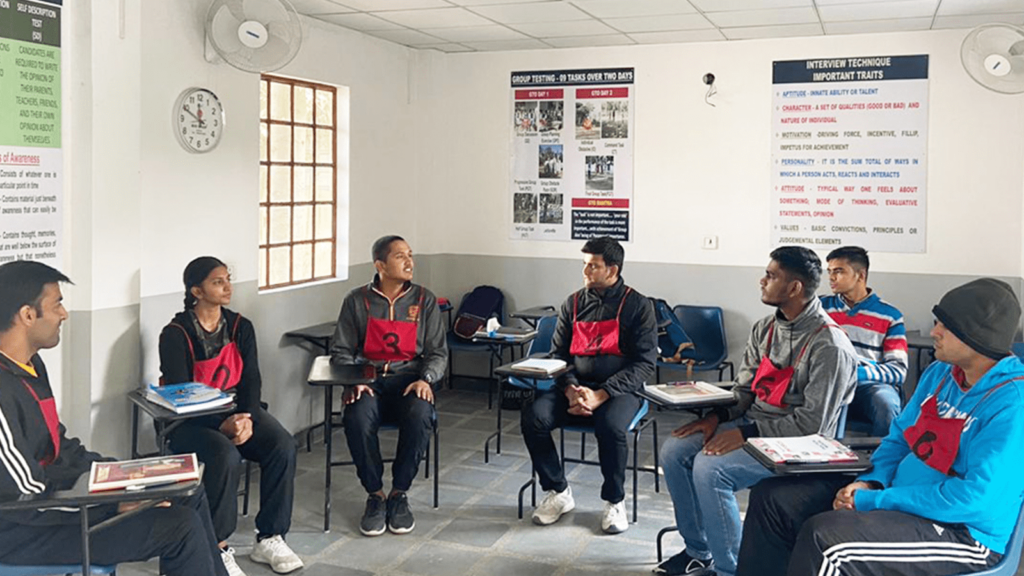
GD - Group Discussion
Candidates engage in Group Discussions, selecting and deliberating on given topics. Effective execution involves mastering public/group speaking nuances. Continuous Personality Development Lectures and Training Sessions cover vital national matters and current affairs, fostering adeptness in communication.
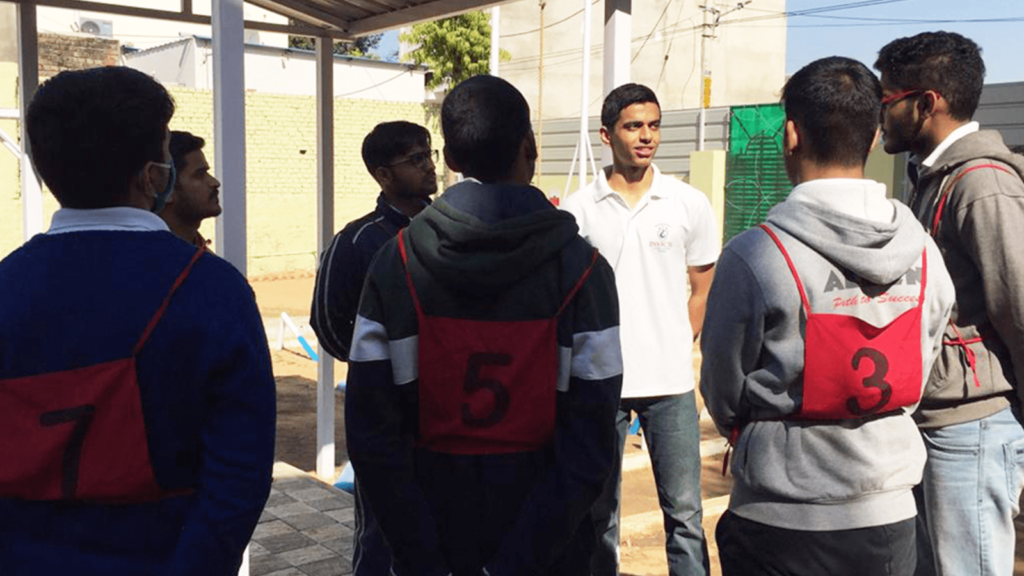
GPE - Group Planning Excercise
In Group Planning Exercise, candidates draft individual action plans based on a provided map. Group members collaboratively discuss and reach a consensus on a unified plan. A designated representative clarifies the shared plan. To tackle challenges, candidates receive map analysis relevant to the given problem.

FGT - Final Group Task
The FGT, or Final Group Task, serves as the concluding installment in the series, aimed at unifying the entire group. Similar to the PGT, this task requires the collective effort of the group; however, a significant time constraint adds an additional layer of challenge. The group must collaboratively tackle the task while operating under stringent time limitations. This test not only evaluates their cohesion and problem-solving abilities but also their capacity to deliver effective results under pressure.
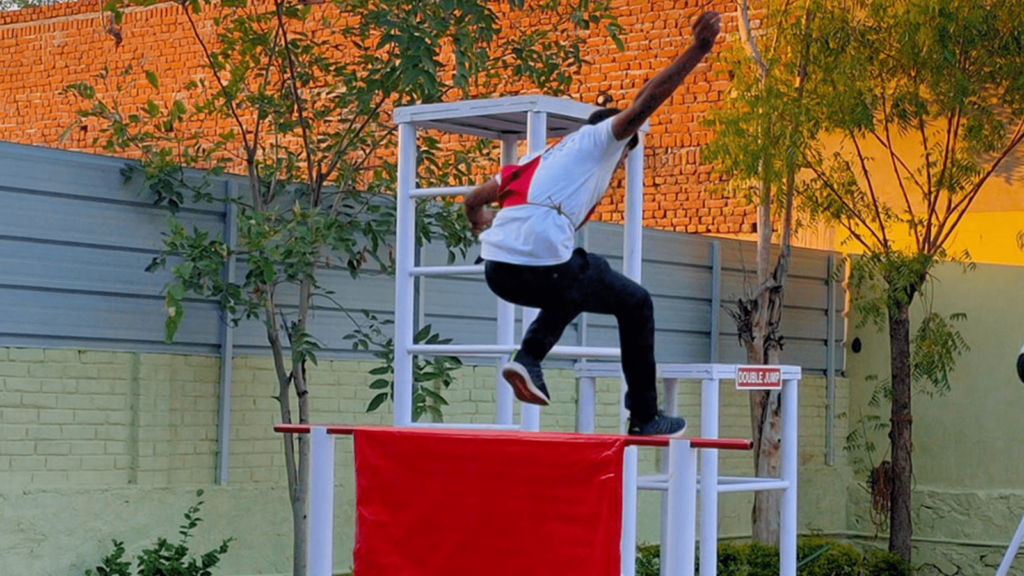
Snake Race/ Group Obstacle Race
PGT entails navigating obstacles within an area. Team members follow rules to cross each obstacle, aided by materials from the G.T.O. Named “Progressive Group Task,” its challenges escalate progressively. Regular guidance and practical tips on ingenuity, decision-making, and on-field strategies are provided through multiple task examples, ensuring comprehensive candidate preparation.

Individual Lecturette
This task involves the GTO presenting four topics, from which candidates select one to deliver a 3-minute lecture. The academy offers comprehensive exposure to a range of subjects, providing expert guidance and methodologies for delivering succinct, timed presentations. This equips candidates with the skills to effectively communicate their chosen topic within the allotted time frame, enhancing their overall preparedness.
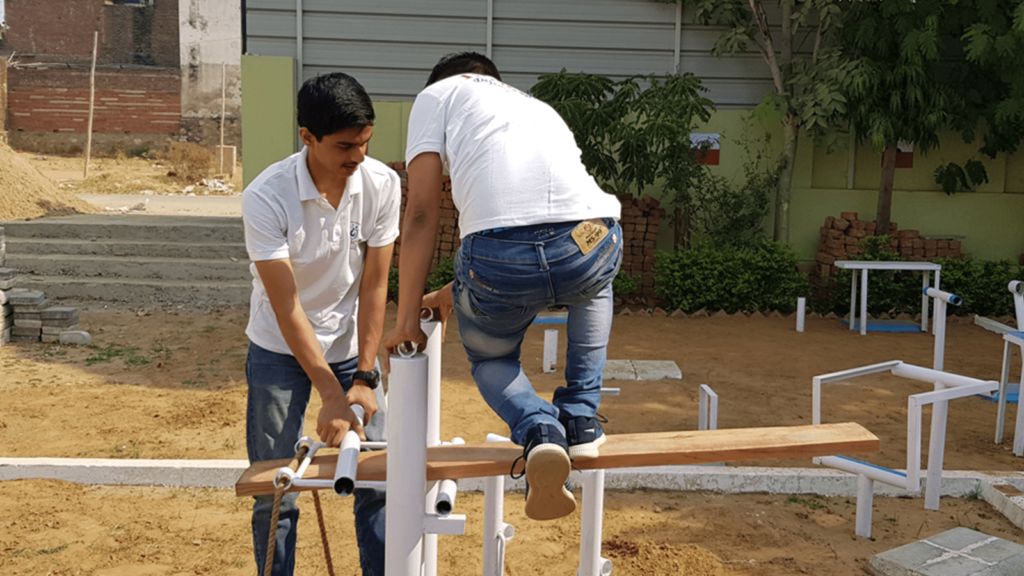
HGT - Half Group Task
The HGT, or Half Group Task, closely resembles the PGT, with the key distinction being that it involves only half the participants of a PGT team. This alteration ensures a more streamlined and intimate group dynamic, fostering increased collaboration and interaction among members. The reduced team size promotes a deeper engagement, allowing each participant to contribute more extensively to the task’s objectives.
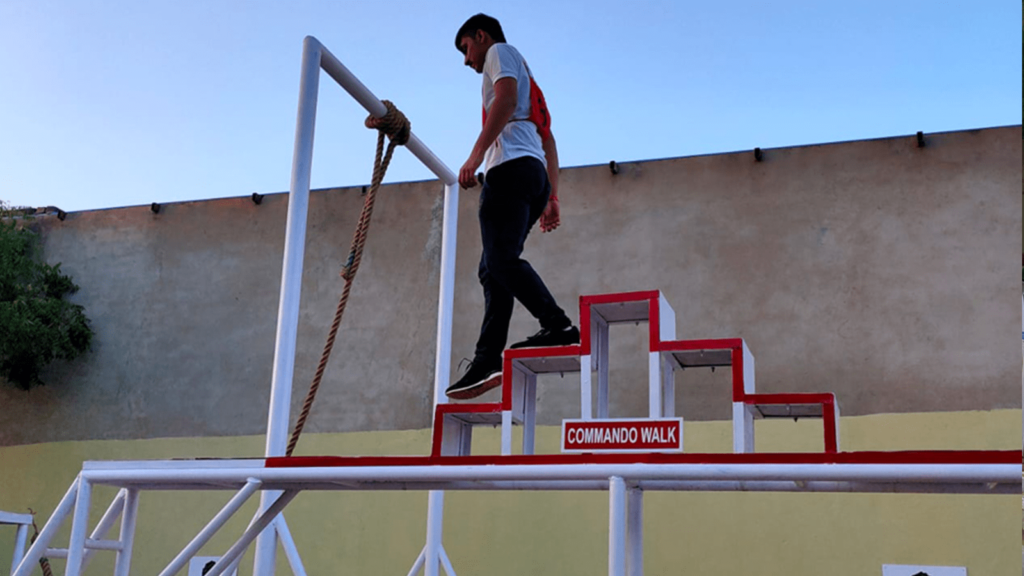
Command Task
In the Command Task, as the title implies, every candidate takes a turn as the group commander. Their objective is to navigate through on-field obstacles with the assistance of 2-3 chosen subordinates from within their own candidate group. This challenge assesses not only their leadership and decision-making skills but also their ability to strategize and collaborate effectively within a limited team framework.

Individual Obstacles
The Individual Obstacles segment comprises a series of 10 outdoor challenges, each to be undertaken individually at a designated location. These diverse obstacles are assigned varying point values, ranging from 1 to 10, which the GTO utilizes for scoring purposes. This assessment allows candidates to demonstrate their personal aptitude and contribute to the overall evaluation of the candidate’s performance.
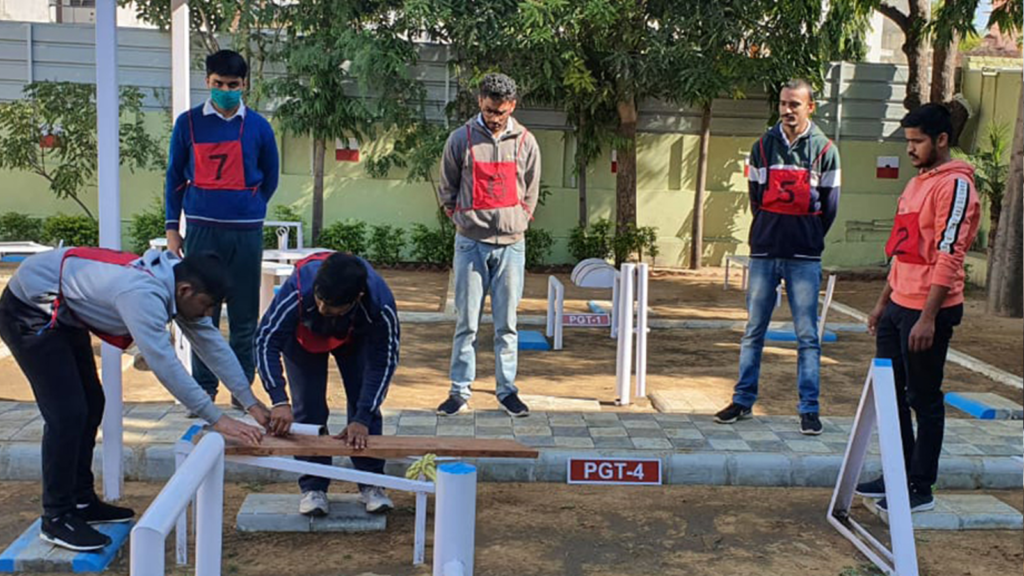
PGT - Progressive Group Task
In the Progressive Group Task (PGT), participants engage in group-based competition, pitting team members against each other. This unique challenge mandates adherence to specific task-related rules, further adding to the complexity of the exercise. The task’s competitive nature encourages individuals to showcase their collaborative skills while navigating through the established regulations. As groups vie for success, their ability to harmonize within the framework of the task and adhere to the set guidelines becomes a pivotal aspect of the evaluation.



